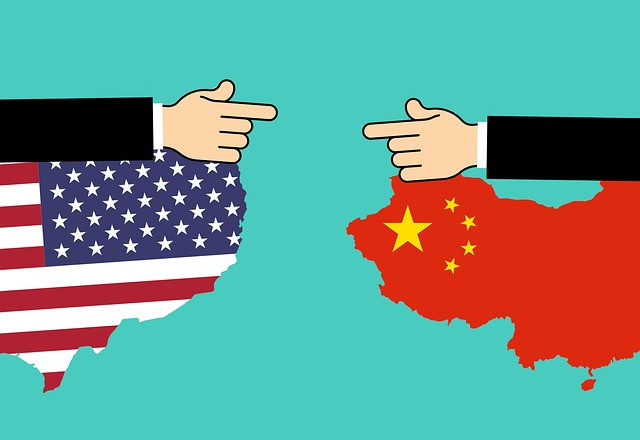The United States and China are ramping up their technology rivalry, with new export restrictions and retaliatory measures escalating tensions between the world's two largest economies. Washington unveiled sweeping controls on semiconductor technology, targeting China's access to critical components for military and artificial intelligence (AI) development. In response, Beijing has doubled down on its efforts to achieve self-reliance in advanced technologies while accusing the US of destabilizing global supply chains.
On Monday, the Biden administration announced its third round of chip export restrictions in as many years. The new rules limit sales of semiconductor-making equipment, high-bandwidth memory chips essential for AI applications, and related technologies. "They're the strongest controls ever enacted by the US to degrade the PRC's ability to make the most advanced chips that they're using in their military modernization," Secretary of Commerce Gina Raimondo said.
The measures aim to stymie China's progress in developing advanced AI tools and military technologies, which the US views as threats to its national security and that of its allies. These curbs add to previous restrictions, including October 2022 measures that closed loopholes allowing China access to cutting-edge semiconductor components.
China has condemned the restrictions, accusing the US of engaging in "unilateral bullying actions" that threaten global industrial stability. "The US preaches one thing while practicing another, excessively broadening the concept of national security, abusing export control measures, and engaging in unilateral bullying actions. China firmly opposes such actions," the Chinese Commerce Ministry said in a statement.
In a retaliatory move, Beijing announced a ban on the export of key materials used in semiconductor and battery production, including gallium, germanium, and antimony. While restrictions on some of these materials were introduced last year, companies could previously apply for special permits to export to the US-a loophole that has now been closed. The Chinese Commerce Ministry justified the ban by stating that these materials could be used for military purposes.
The growing trade war is reshaping the semiconductor industry, which lies at the heart of global technological and military advancement. Beijing has intensified efforts to bolster its domestic semiconductor capabilities, launching a $47.5 billion investment fund backed by major state-owned banks. The fund is a cornerstone of President Xi Jinping's strategy to make China a global tech superpower.
Meanwhile, Chinese industry associations have urged domestic companies to shun US chips. Four prominent groups, representing sectors such as telecommunications, semiconductors, and the digital economy, issued statements advising companies to prioritize local and non-US suppliers. The Internet Society of China encouraged firms to "proactively" adopt chips made by domestic or foreign-owned enterprises operating in China, warning that US products are "no longer safe."
The coordinated warnings could significantly impact American chipmakers like Nvidia, AMD, and Intel, which have continued to sell to China despite tightening restrictions. The China Association of Communication Enterprises called on the government to investigate the security of critical information infrastructure and asserted that US chip products are unreliable.
The tit-for-tat measures come amid broader geopolitical tensions, including growing US concerns about a potential Chinese invasion of Taiwan. China's ruling Communist Party claims Taiwan as its own territory, though it has never governed the democratic island. The US has repeatedly emphasized Taiwan's strategic importance to global chip production and its military alliance with the island.






